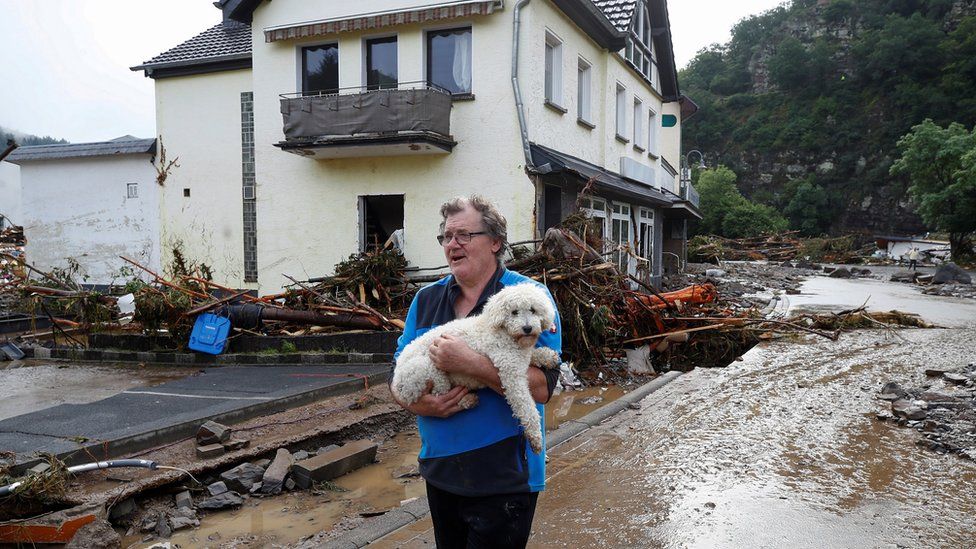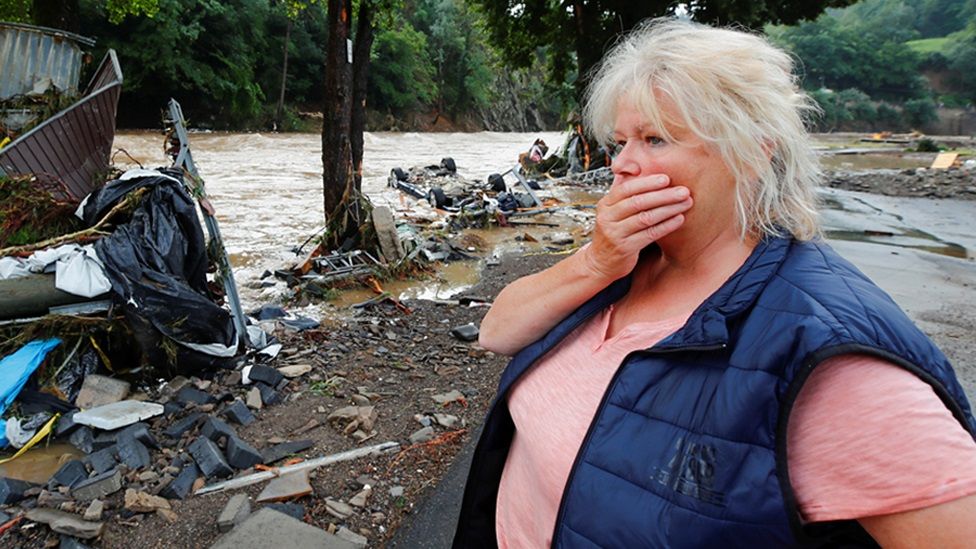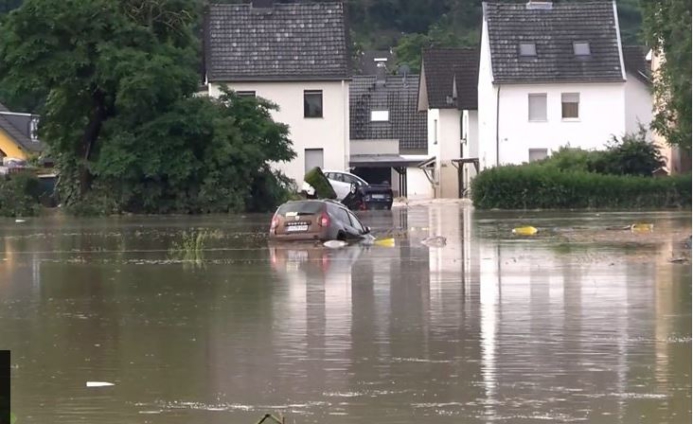
Audio By Carbonatix
At least 80 people have died and hundreds more are unaccounted for in Germany after some of the worst flooding in decades.
Record rainfall in western Europe caused rivers to burst their banks, devastating the region.
Belgium has also reported at least 11 dead after the extreme weather, which political leaders have blamed on climate change.
German Chancellor Angela Merkel has pledged full support for the victims.
Armin Laschet, the premier of North Rhine-Westphalia, blamed the extreme weather on global warming during a visit to a hard-hit area.
"We will be faced with such events over and over, and that means we need to speed up climate protection measures... because climate change isn't confined to one state," he said.
Experts say that climate change is expected to increase the frequency of extreme weather events, but linking any single event to global warming is complicated.


The German states of Rhineland-Palatinate and North Rhine-Westphalia were worst hit, but Belgium and the Netherlands are also badly affected, with further flooding in Luxembourg and Switzerland.
In the district of Ahrweiler, hundreds of people are unaccounted for, the authorities say. A spokeswoman for the local government said mobile networks had been put out of action, making it impossible to contact many people.
The village of Schuld (population 700) was almost entirely destroyed.
More heavy rain is forecast across the region on Friday.
🌧 La crue de la Vesdre atteint une ampleur dramatique à Verviers dans l'est de la Belgique ce matin ! Certaines rues sont noyées sous près de 2 mètres d'eau ! (© Katia Bogaert) pic.twitter.com/yDGNgflP1y
— Météo Express (@MeteoExpress) July 15, 2021
Meanwhile, in the town of Pepinster, 10 houses collapsed after the River Vesdre burst its banks.
Almost 2,000 people were forced to evacuate in the town of Chaudfontaine, Belgium's Le Soir newspaper reported.
Rail services in the southern half of Belgium have been suspended because of the extreme weather.
In the Netherlands, the province of Limburg has been left heavily flooded following downpours overnight.
Forecasts suggest more heavy rain is due in much of western Europe on Thursday and Friday.
Experts say that climate change is expected to increase the frequency of extreme weather events, but linking any single event to global warming is complicated.
Armin Laschet, the premier of North Rhine-Westphalia, blamed the extreme weather on global warming during a visit to a hard-hit area.
"We will be faced with such events over and over, and that means we need to speed up climate protection measures... because climate change isn't confined to one state," he said.
Latest Stories
-
Ghana is rising again – Mahama declares
4 hours -
Firefighters subdue blaze at Accra’s Tudu, officials warn of busy fire season ahead
5 hours -
New Year’s Luv FM Family Party in the park ends in grand style at Rattray park
5 hours -
Mahama targets digital schools, universal healthcare, and food self-sufficiency in 2026
5 hours -
Ghana’s global image boosted by our world-acclaimed reset agenda – Mahama
5 hours -
Full text: Mahama’s New Year message to the nation
5 hours -
The foundation is laid; now we accelerate and expand in 2026 – Mahama
6 hours -
There is no NPP, CPP nor NDC Ghana, only one Ghana – Mahama
6 hours -
Eduwatch praises education financing gains but warns delays, teacher gaps could derail reforms
6 hours -
Kusaal Wikimedians take local language online in 14-day digital campaign
7 hours -
Stop interfering in each other’s roles – Bole-Bamboi MP appeals to traditional rulers for peace
7 hours -
Playback: President Mahama addresses the nation in New Year message
8 hours -
Industrial and Commercial Workers’ Union call for strong work ethics, economic participation in 2026 new year message
9 hours -
Crossover Joy: Churches in Ghana welcome 2026 with fire and faith
10 hours -
Traffic chaos on Accra–Kumasi Highway leaves hundreds stranded as diversions gridlock
10 hours

